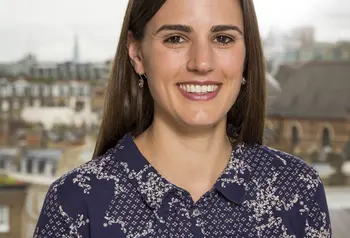What next for the First World War Centenary?

The scale of death and suffering caused by the First World War, so powerfully captured by the poetry of Wilfred Owen, Siegfried Sassoon, Rupert Brooke and others, inevitably dominates commemorative activity.
The “war to end all wars” was, of course and sadly, no such thing and so it is right the terror and horror of the war should never be forgotten. But the lasting impact of the First World War also needs to be better understood and commemorated.
National Lottery players supporting local communities
Thanks to National Lottery players, communities across the UK have been exploring the events of 1914-1918 throughout the Centenary.
Since we launched our community grants programme First World War: then and now, we have awarded more than £10million to a huge range of community groups, including residents’ associations, women’s institutes, faith groups, YMCAs, refugee councils, theatre groups, and many, many more. I am struck by the variety of topics being explored.
Communities have uncovered stories of Indian, African and Caribbean soldiers, conscientious objection, the home front, the impact on women and children, industry, the experiences of refugees in the UK, advances in medicine and surgery, even women’s football and circus during the war. The list goes on.
A moment of reflection
With a year and half to go until the Centenary of the Armistice in 2018, this is an appropriate moment to take stock. A moment to ask what more can be done to engage us all with the complex, challenging and often uncomfortable history and legacy of the First World War.
Last month, Heritage Lottery Fund brought together a small number of cultural organisations and historians at the Imperial War Museum, to reflect upon the Centenary so far and to consider what more could or should be done. It was a fascinating discussion. It was recognised by everyone that this commemoration is being led and shaped by communities, and that this is something to be celebrated.
[quote]"The war and its impacts didn't end in 1918 and we must recognise this."[/quote]
A point we all agreed on was the importance of exploring the lasting impacts of the war, as well as the events of 1914-1918. The war and its impacts didn't end in 1918 and we must recognise this.
Exploring stories beyond 1918
The Armistice was an enormously significant event in world history, and it is important that we mark its centenary in November 2018. It was not, though, the end of the first global war. This simple but important fact needs to be better understood.
The war itself continued for many combatants well after the European Armistice (my own father, who was by then in Mesopotamia, was only discharged in December 1919) and its wider implications still resonate a century later.
At a personal level, this resonance was only recently brought home to me as I understood for the first time why my childhood was so full of maiden aunts – there weren't enough men to go round after the slaughter in the trenches.
The First World War and the world today
I knew that the Second World War had its origins, in large part, in the humiliating burden of reparations imposed on Germany at Versailles. So modern Europe and Britain’s troubled relationship with its institutions are both products of the First World War – without the war there would have been no European Union for us to ’Brexit’.
I had worked out that at least three countries gained their real identities from the pain of the war in the Dardanelles – Turkey, Australia and New Zealand. I knew that the desert campaigns had further shaped the destinies of the countries and tribes of the Middle East. I knew that Churchill’s decision to convert the Royal Navy from coal to oil explained why my dad had fought over the oil fields of what is now Iraq.
I had not appreciated though, that it was not just women who won the right to vote in 1918, after their vital contribution to the war effort changed attitudes to suffrage. Many millions of men lacking the right property qualifications had also been disenfranchised until then – universal male suffrage too, in the same legislation as that for women’s votes, is a product of the war. If they could fight and die for their King and Country, surely, politicians were forced to accept, they should be able to vote for its government.
Incidentally, the fight to increase the shamefully low number of women in engineering in the UK began as a result of the war – but sadly, the Women’s Engineering Society, founded in 1919, hasn't won its battle yet, nearly a hundred years later.
Great institutions like the League of Nations, forerunner of the United Nations, and the RAF were products of the war too. At HLF we are proud to have funded two projects at the RAF Museum in Hendon that will help the RAF celebrate its centenary in a significant way in 1918.
Very different organisations were a product of the war as well – this project at Queen Alexandra Hospital Home in West Sussex is one of many we’ve funded which explore the establishment of a charity in the aftermath of the First World War.
The war even had its influence on race relations in the UK, as is shown by a fascinating project exploring the racism experienced by soldiers and merchant seamen from African and the Caribbean left stranded in Liverpool after the First Word War.
Funding for legacy projects
[quote]"We want to fund more projects exploring the impacts of the First World War."[/quote]
The legacy of the First World War is, then, a contemporary one. That’s why we want to fund more projects exploring the impacts of the First World War both in the years immediately following the Armistice and beyond.
Grants of £3,000 - £10,000 are available through First World War: then and now, which will be open to applications until the end of 2018. We also provide grants for First World War projects though Our Heritage, Young Roots and Heritage Grants.
Thanks to National Lottery players we can learn not just about the horror of the war, but also about what it still means for us as we live our lives in 2018.
